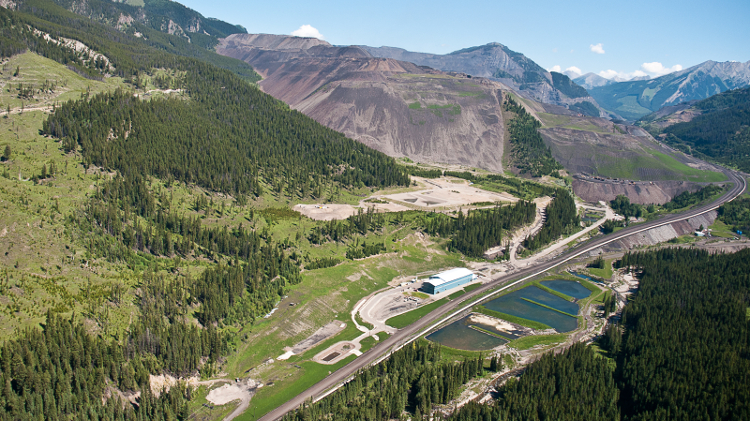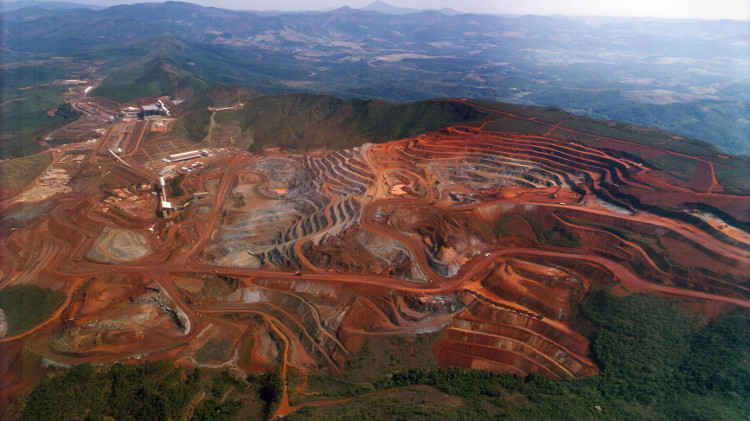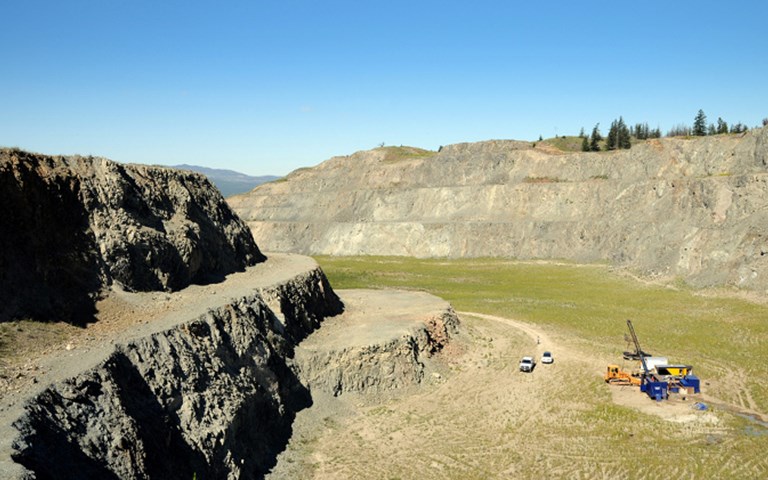Ajax, a 1,700-hectare open-pit copper-gold project, is located about 10 kilometres southwest of Kamloops. Courtesy of KGHM Polska Miedź S.A.
Updated with comment from the Mining Association of British Columbia
KGHM International’s proposed Ajax mine near Kamloops, British Columbia will not receive an environmental assessment certificate, the provincial government announced on Thursday.
B.C. environment minister George Heyman and mines minister Michelle Mungall said in a joint news release that the $1.3-billion project had the potential for 53 “residual and cumulative” adverse effects, including air quality and risk to human health.
The 1,700-hectare open-pit copper-gold project is located about 10 kilometres southwest of Kamloops on the traditional territory of the Stk’emlupsemc te Secwépemc Nation (SSN), Ashcroft Indian Band, Lower Nicola Indian Band and Whispering Pines/Clinton Indian Band.
“Given these conclusions and the close proximity of Ajax to the City of Kamloops, particularly the neighbourhood of Aberdeen, including an elementary school, the ministers concluded the adverse effects would not likely be mitigated to an acceptable level and would therefore prevent an unacceptable risk,” the release said.
In a statement on Friday, KGHM’s parent company, Polish miner KGHM Polska Miedź S.A., said “KGHM…will consider the next steps, which may include judicial review.”
In a Facebook post on Thursday, KGHM’s external affairs manager for Ajax, Yves Lacasse, thanked staff for their work over the past six years. “Regardless of your position on the project, I am proud of the professionalism displayed by our staff (past and present) in the community,” he wrote.
Related: New B.C. government joins fight against Trans Mountain expansion, reviews “professional reliance” system
Bryan Cox, president and CEO of the Mining Association of British Columbia, called the announcement disappointing. "Obviously whenever a project doesn't move forward through the process, for the industry it's disappointing," he told CIM Magazine. "And when you think of a project like Ajax, it's one that could have provided economic benefit, both in terms of jobs and the commodity that's produced."
Cox said that despite the announcement, he felt the province's new NDP government has been clear about its "commitment" to the mining industry. "This is one specific project, but the government has made that comment to industry and also publicly that they believe this industry is foundational and essential in the transition to a lower carbon economy," he said.
Kamloops City Council and the four First Nations had previously objected to the mine being built. In March an environmental review panel led by the SSN rejected the project after a months-long review, citing the spiritual and cultural importance of the land around Jacko Lake, where the mine would be located.
Ajax was the first mining project in British Columbia’s history that needed to have a First Nations consultation plan as part of the environmental assessment project.
The ministers said in the release that the assessment found the project would have “significant adverse impacts” on the asserted aboriginal rights and title of the SSN, “which in many cases could not be avoided or minimized.
“The ministers concluded these effects were unacceptable in the circumstances.”
The environmental assessment was coordinated between the provincial Environmental Assessment Office and the Canadian Environmental Assessment Agency. It evaluated the project for five different types of effects – environmental, economic, social, heritage and health.
Federal environment minister Catherine McKenna issued a separate news release on Thursday saying that she had referred the project back to Fisheries and Oceans Canada and Natural Resources Canada to determine whether the project could go ahead.




